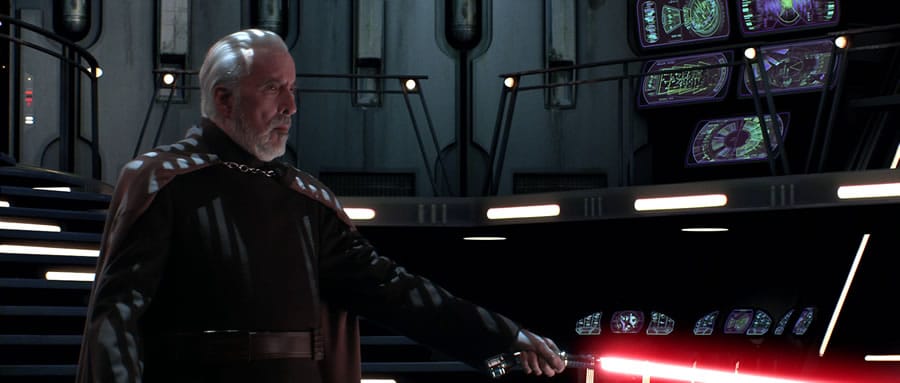
The issue of mixture of religions and philosophic doctrines in Star Wars essay
The issue of mixture of religions and philosophic doctrines in Star Wars by G. Lucas is indeed a very complex one. There can be no doubt that he used all major religious and philosophic codes, such as Christianity and Taoism, to devise the idea of Force as a guiding principle for the world of Star Wars.
Both the Jedi and the Sith are attuned with the Force, but in different ways. While the Sith attain power and might from negative emotions such as anger and hatred and use this power for the personal gain, the Jedi attain power through daily meditation, training and aspiration to perfection, using the power granted to them for the welfare of others. The principle of wu wei is universal for the Force, thus affecting all force-users. Why is that so? Because the Force (i.e. the Tao) acts on the principle of wu wei itself. This “wu wei” action of Tao is capable of keeping nature and society in balance and harmony, Tao is everywhere, and yet nowhere, it is ever-present. It is the same with the Force, which “…surrounds us and penetrates us. It binds the galaxy together”. Literal meaning of “wu wei” is “not doing”, but here we must admit that literal meaning is rather opposite to the actual one. Wu wei is not “inaction” or “absence of action”, it is rather action which happens naturally, in an effortless way. “Wu” is often translated and thought of as “no”, “not”, “nothingness” and thus recognized as negative (it is common to western thought). But wu in the meaning “nothingness” (as opposite to ‘yu” – existence) is not negative. To explain this, we must cite the words of Lao Tzu: “Heaven and earth and all things were begotten of what is; and what is is begotten of wu, the non-existent, the spirit [Tao]”. In this way we can state that wu and tao are the same, so wu wei (“not doing”) can be read as “Tao wei” (“doing by the spirit”).
In general, the Jedi Code is a mixture of Christianity and Taoism. The concept of wu wei (though it is not named) can be seen at work in every aspect of Jedi’s life and training. The core features of Jedi Code are their faith in intuition and the will of the living Force. In general Jedi Code is expressed in the following formula:
There is no emotion, there is peace.
There is no ignorance, there is knowledge.
There is no passion, there is serenity.
There is no chaos, there is harmony.
There is no death, there is the Force.
These are the five corner-stones of the Jedi faith: Peace, Knowledge, Serenity, Harmony and the Force. The Jedi cherish life in all its forms. All things start from and end in the Force. In the same way Tao is a universal cause of existence of all sorts of things. In Taoism, the objective of spiritual practice is “to become one with the Tao” (which is much alike to Jedi, who on death “become one with the Force”). Through intuition Jedi come to know how to deal with situations and conflicts at hand in a non-violent way. The key to this is not to judge who is right or who is wrong, feel no sympathy or hatred to any side of the conflict. Only when these requirements are met, it is possible to solve the conflict. It is perfectly similar to the thoughts which are expressed in “Tao Te Ching”:
He who in (Tao’s) wars has skill
Assumes no martial port;
He who fights with most good will
To rage makes no resort.
He who vanquishes yet still
Keeps from his foes apart;
He whose hests men most fulfil
Yet humbly plies his art (Lao Tzu).
Wu wei is doing without trying to do. It can be clearly seen in the words which master Yoda says to Luke on Dagobah from “The Empire Strikes Back” movie: “Luke: I’ll give it a try. / Yoda: No! Try not. Do. Or do not. There is no try” (Porter).
In conclusion to our overview we can add only that the Jedi Code and the faith in the Force is most certainly had been influenced greatly by eastern religion and philosophy, Taoism being predominant in this process. Some inclusions from Christianity (such as protecting the weak and love and compassion to other people) add to the specific nature and attraction of G. Lucas’ fictional world.

